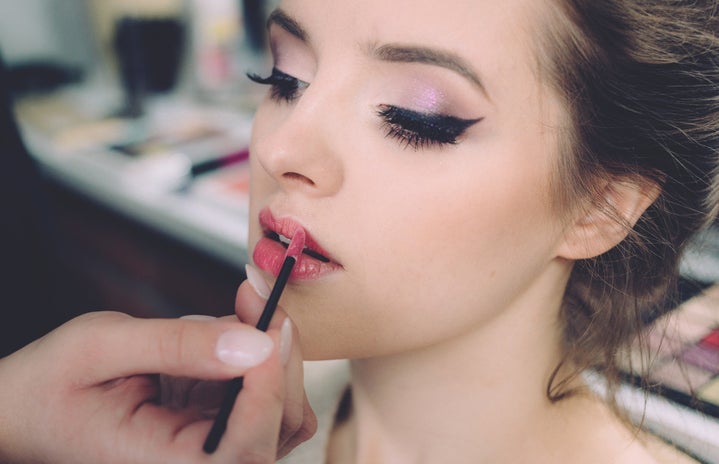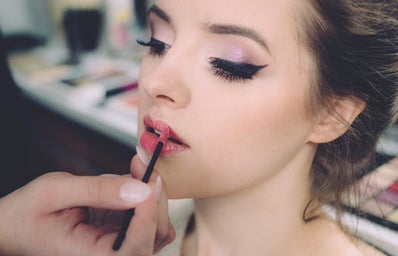Welcome to 3 Changes a Week: your weekly update on how to save the planet.
Welcome to what I like to call ‘Season 2’ of 3 Changes a Week. After a Christmas holiday hiatus, I am back with three more weekly tips to reduce waste and protect the planet.
We have previously discussed making changes in the bathroom, but I haven’t fully covered making your beauty routine as eco-friendly as possible; I haven’t discussed make-up. While I rarely use make-up, my sister’s bathroom is covered in hundreds of little plastic bottles that often can’t be recycled. Every day, she removes the make-up with face wipes.
When I came home for Christmas, I suggested that she switch out her daily use of make-up wipes, as these are the worst culprit of all. Completely unrecyclable and non-disposable, made of plastic, and – even worse – often flushed down the loo. However, she complained that alternatives seemed complicated, ineffective or expensive. I decided that I needed to prove that it couldn’t be as hard as it seemed – and whilst I was here, why not tackle the problem of the make-up itself too?
1. USE AND CHOOSE MAKE-UP CONSCIOUSLY
Ease: ***
Cost: Eyelash tinting is around £15, and Lush’s make-up products are around £10 each
I want to preface this with saying that, yes, I recognise that make-up can already be expensive, and if you are a complete make-up addict, you might not be able to afford to choose brands that have a lower-environmental impact. However, when you are trying to reduce waste, purchasing carefully, mindfully and buying only as much as you need is important. Also, it’s important to recognise that a passion for make-up is probably damaging to the environment and might need to be handled more responsibly.
Plastic-free make-up can be quite hard to source, so the bold among you might want to first consider ‘permanent’ make-up as a way to cut down the amount you use and therefore how often you need to buy. There is the actual permanent make-up look, which is a medical procedure called micropigmentation. This is similar to a tattoo and can be used to created lip liner, eyeliner or fill in eyebrows. However, this is expensive, somewhat risky and very, very permanent.
The kind of ‘permanent’ make-up I would suggest is eyelash and eyebrow tinting, which lasts about a month and costs under £20. I have my eyelashes tinted regularly, and it means I barely ever have to wear mascara, except for big events. You can also get eyelash lifts (similar to a hair perm), although these are rumoured to not last well, or eyelash extensions. Eyelash extensions are where fake lashes are glued along the lash line, amongst your own lashes. The process is time-consuming and pricey as you have to have them maintained every few weeks, but the effect is incredible. It’s not for everyone, but it might be one way to minimise plastic use.
There are also several brands who offer plastic free make-up products. Did you know Lush offers a whole load of plastic-free or recycled packaging make-up? There’s solid foundation, concealer, highlighter, blush and lipstick. There’s also mascara and eyeliner, which is in plastic packaging, but this can be returned to Lush to be recycled and reused. Other brands tend to be much more pricey – there’s Megan Markle’s favourite RMS Beauty, which is nearly all packaged in glass or metal, and is all organic and sustainable, and bamboo-packaged Zao. There are many more American sites, but this obviously shoots costs right up with the overseas postage, and adds carbon emissions for the extra travelling distance. Overall, Lush has an amazing range and is fairly reasonable, and I’m very excited to try out some products.
2. ONLY USE BIODEGRADABLE GLITTER
Ease: ****
Cost: around £5
I feel like glitter should get a special mention. It has become a favourite part of make-up routines in frequent years, especially for festivals and parties. However, glitter is a microplastic and very, very easily ends up being dropped into the environment or washed down drains into the sea. There are now many brands who make a biodegradable version of glitter, from plants. If you’re going to a festival, try out Eco Glitter Fun, or Eco Stardust (their Mermaid Biodegradable Glitter Set is pictured below). Both have awesome ranges of mixes, sizes and colours.
3. STOP USING MAKE-UP WIPES
Ease: *****
Cost: less than £5 to invest in a flannel and some coconut oil, around £10 for water-only cloths or reusable pads
Make-up wipes are the worst. They are one of the most common items washed up on beaches, as people frequently flush them down the toilet (along with so-called ‘flushable’ toilet wipes, that aren’t really flushable). What’s more, they’re also rubbish for actually cleaning your face. It’s easy to hide chemicals in them, and they’re made of plastic – no thanks.
Luckily, ditching make-up wipes is one of the easiest switches you can make, and there are many alternatives. There are some more eco-friendly, supposedly biodegradable versions of make-up wipes on the market, but these are expensive. What I currently do is use a flannel with some Boots make-up remover – this still comes in a plastic bottle, but it is better than those damned wipes. You could use a flannel to apply a better solution, such as one of these homemade make-up removers, or plain coconut oil, which is supposed to work well. There are also make-up removal towels which are supposed to work only with water, which might work for some kinds of make-up, maybe with a little make-up remover to get off the tough bits. You can also use these soft make-up removal pads, which can be thrown in the wash and re-used time and time again, and are probably much nicer than my old flannel. Any of these is better for your skin and the planet and much, much cheaper too!
Made these changes or already doing them? Tag your pictures to #3changesaweek and spread the word!


